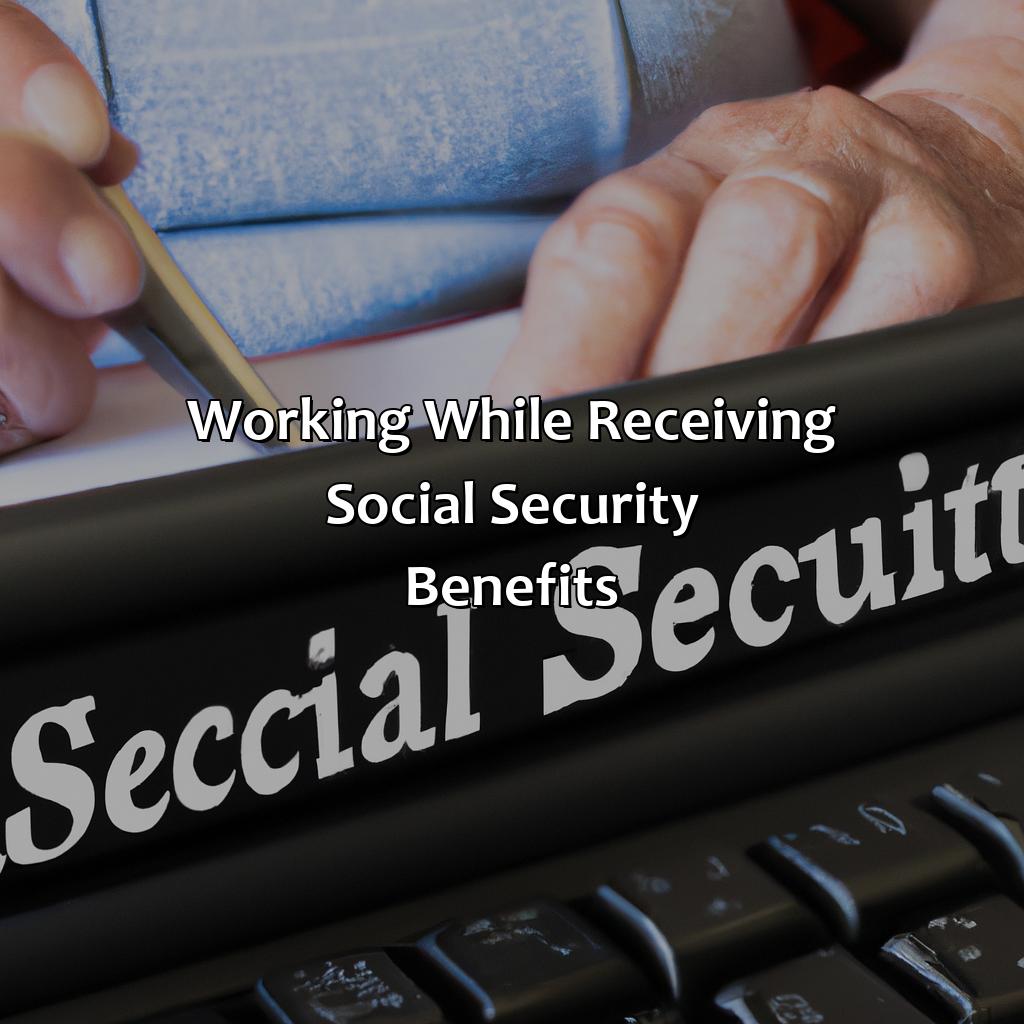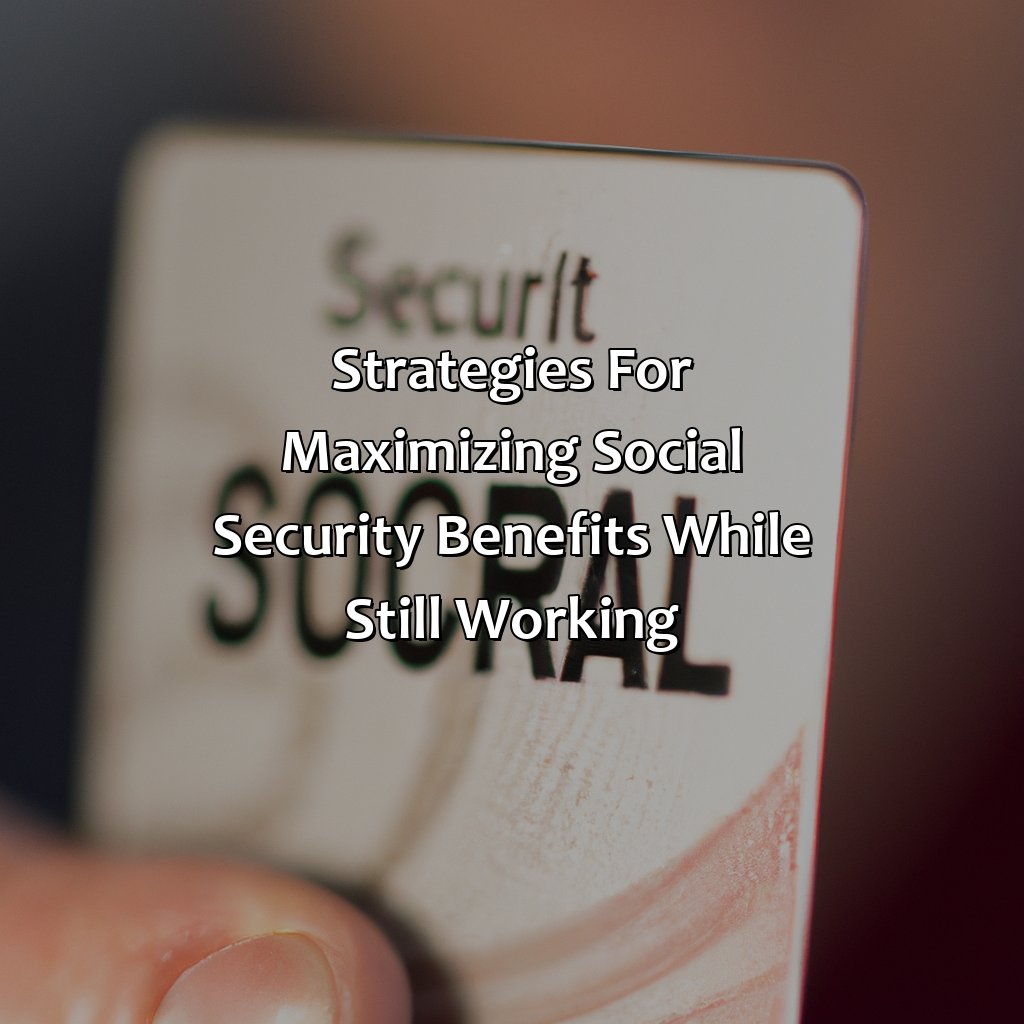What Happens If I Take Social Security Early And Still Work?
Key Takeaway:
- Taking social security early while still working will result in reduced benefits: Workers who take social security benefits before reaching full retirement age will receive reduced benefits, and those who continue to work may lose even more of their benefits due to the earnings test.
- There are earning limits for those taking early retirement: If you take social security benefits before full retirement age and continue to work, you will be subject to earning limits. The earning limit for 2021 is $18,960.
- Delaying social security benefits can maximize your benefits: Workers who delay taking social security benefits can increase their monthly benefits and potentially receive higher lifetime benefits. Delaying benefits until age 70 can result in up to 32% more in monthly benefits than taking them at full retirement age.
Are you considering taking early social security benefits but worried about the consequences if you continue to work? Learn about the pros and cons of taking social security early, so you can make an informed decision that’s best for your financial future. You’ll find all the answers here.
How early retirement affects social security benefits
Retiring early can affect your social security benefits significantly. It is important to consider the impact before deciding to retire early. Social security benefits are reduced if you retire before full retirement age. However, if you continue working, the benefits can be further reduced. Your earnings may also be limited due to social security limits, which affects the amount you can earn while receiving benefits. It is important to consider these factors before making the decision to retire early.

Image credits: retiregenz.com by Yuval Duncun
Working while receiving social security benefits
Asking ‘What happens if I take social security early and still work?’ while receiving social security payments is a common question among retirees. Working while receiving social security payments can reduce benefits, but it depends on your age and income. The Social Security Administration uses the earnings test rule to evaluate your earning and determine the reduction in benefits if your income exceeds a set limit.
If you are between 62 and full retirement age, which is typically between 66 and 67, and still working while receiving social security benefits, the earnings test will deduct $1 from your benefits for every $2 you earn above $18,960 ($1,580 per month). Once you reach full retirement age, you can earn as much as you want without any deductions. However, your benefits may still be subject to income taxes depending on your level of income.
To ensure your benefits will not be affected, it’s best to wait until full retirement age to start receiving benefits. Alternatively, you can stop working or reduce your earnings to avoid deductions. Keeping track of your earnings and notifying the Social Security Administration of any changes is essential so you can receive your benefits accurately.

Image credits: retiregenz.com by Adam Arnold
Strategies for maximizing social security benefits while still working
Maximizing Social Security Benefits While Working
Maximizing your social security benefits while working is crucial for securing your financial future. Here are some strategies to achieve this objective.
Strategic Approaches
• Delay Collecting Benefits: Consider retiring after the Full Retirement Age (FRA) to avoid a permanent reduction in benefits.
• Stay Below Earnings Limits: If you collect benefits before FRA, make sure to stay under the set earnings limits to avoid a reduction in benefits.
• Claim Spousal Benefits: If your spouse has higher benefits, you can choose to claim their benefits instead of yours.
Other Important Points
Staying employed can impact the amount of Social Security benefits you receive. It could cause an increase in your lifetime earnings, which can lead to a bigger monthly Social Security payment. You must closely follow the limits and regulations of Social Security while working.
Fact Statement
According to Social Security Administration (SSA), delaying benefits until age 70 could result in around an 8% annual increase in your benefit amount.

Image credits: retiregenz.com by Adam Jones
Five Facts About Taking Social Security Early and Still Working:
- ✅ You can begin taking Social Security benefits as early as age 62, but your benefits will be reduced if you are still working. (Source: AARP)
- ✅ If you earn more than a certain amount ($18,960 in 2021), your Social Security benefits will be reduced by $1 for every $2 you earn above that threshold. (Source: Social Security Administration)
- ✅ If you continue to work and earn higher wages after taking early Social Security benefits, your future benefits may be recalculated to account for these additional earnings. (Source: Investopedia)
- ✅ Taking Social Security benefits early and still working may increase your overall tax burden, as your benefits could be subject to federal income taxes. (Source: SmartAsset)
- ✅ There may be some advantages to taking Social Security early and still working, such as having additional income or using the benefits to pay down debt or invest in other retirement savings. (Source: The Motley Fool)
FAQs about What Happens If I Take Social Security Early And Still Work?
What happens if I take social security early and still work?
If you decide to take social security benefits before your full retirement age and still continue to work, your benefits may be reduced based on your earnings. If you earn more than a certain amount, your social security benefits may be reduced up to a certain amount
What is the income limit if I take social security early and still work?
The income limit changes every year, but for 2021, if you are under full retirement age for the entire year, the Social Security Administration will deduct $1 from your benefits for every $2 you earn over $18,960.
What happens if I exceed the income limit?
If you exceed the income limit, the Social Security Administration will reduce your benefits by $1 for every $3 you earn over the limit in the months leading up to your full retirement age.
Is there a limit on how much I can earn while receiving social security benefits?
There is no limit on how much you can earn after you reach your full retirement age. However, if you start receiving social security before full retirement age and are still working, there is an earnings limit which may reduce your benefits.
Will my benefits be permanently reduced if I take social security early and still work?
No, your benefits will not be permanently reduced. Once you reach full retirement age, the Social Security Administration will recalculate your benefits and adjust them to account for the reduction caused by continuing to work while receiving benefits early.
When should I consider taking social security early?
It depends on your individual circumstances. If you need the money to cover your expenses and have no other options, then taking social security early may be a good choice for you. However, if you can afford to wait, delaying your social security benefits until full retirement age or later may result in a higher monthly benefit amount.


